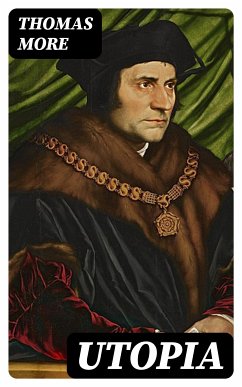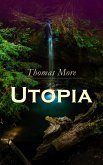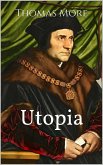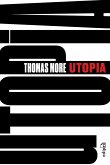In "Utopia," Thomas More presents a poignant exploration of political philosophy and social critique through the lens of fictional narrative. Written in 1516, this seminal work contrasts the societal ills of early 16th-century Europe with the idealized, communal life of the inhabitants of the imaginary island of Utopia. With its incisive dialogues and satirical undertones, More's blend of humanism and skepticism invites readers to reflect on the nature of justice, property, and governance, thus situating the text within the broader context of Renaissance thought and the emerging discourse on social reform. Thomas More, a statesman and scholar who later became a martyr, crafted "Utopia" amidst the backdrop of political and religious upheaval. His experiences at the court of Henry VIII and his deep engagement with humanist ideals profoundly influenced his vision of an equitable society. The blend of his legal acumen and personal convictions is woven throughout the narrative, ultimately constructing a powerful critique of contemporary European politics while offering a visionary alternative. "Utopia" remains an essential read for anyone interested in the intersection of philosophy, politics, and society. More's incisive observations about human nature and governance continue to provoke thought and inspire debate, making it not just a book of its time but a timeless reflection on the quest for an ideal society.
Dieser Download kann aus rechtlichen Gründen nur mit Rechnungsadresse in A, B, BG, CY, CZ, D, DK, EW, E, FIN, F, GR, H, IRL, I, LT, L, LR, M, NL, PL, P, R, S, SLO, SK ausgeliefert werden.









